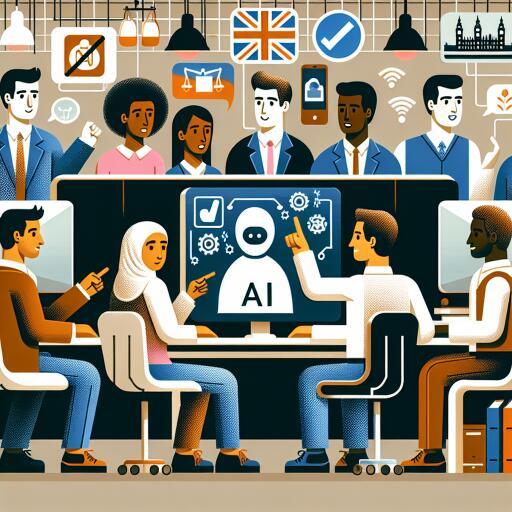Exploring the Balance Between Productivity and Privacy in AI Use Within the U.K. Government
In the rapidly evolving world of artificial intelligence (AI), the race to integrate AI tools like ChatGPT into everyday workflow promises a leap in worker productivity. However, the journey is not without its hurdles, particularly when it comes to the delicate issue of privacy. The U.K.’s Department for Work and Pensions (DWP) stands at this crossroads, reflecting the broader struggle between embracing innovation and safeguarding sensitive information.
As the entity responsible for managing welfare and pension payments for over 20 million people in Britain, the DWP’s approach to AI integration is of national significance. The department’s recent amendment to its “Acceptable Use Policy” clearly demonstrates its cautious stance—publicly available AI applications, including the highly talked about ChatGPT, are now off-limits for staff during official duties or on department-approved devices.
Despite the initial embrace of a “test and learn” methodology towards generative AI’s potential to assist employees with writing tasks and job center work coaches, the decision to ban ChatGPT hints at deeper concerns. It’s apparent that privacy anxieties, particularly around large language models (LLMs) like ChatGPT, are driving the department towards more controlled alternatives.
One such alternative being explored is an internal tool based on Microsoft Copilot. This digital assistant aims to facilitate the automation of certain tasks, potentially offering a safer route to harnessing AI’s capabilities. Yet, why the DWP decided to pivot away from OpenAI’s solution to an in-house experiment remains a matter for speculation, underscoring the opaque nature of privacy-related decisions in the use of AI technologies.
The reticence to adopt ChatGPT isn’t confined to the U.K. alone. Internationally, the bot has been under scrutiny for its data processing practices. An incident involving the disclosure of user messages and payment information by ChatGPT prompted Italian regulators to raise concerns about violations of EU data privacy rules. OpenAI’s spokesperson maintained the company’s commitment to aligning with GDPR and other laws, emphasizing efforts to minimize personal data in AI training processes.
This cautious approach taken by the DWP echoes broader corporate and governmental hesitancy towards ChatGPT. High-profile examples include Apple and Amazon, alongside financial institutions like JPMorgan and Bank of America, which have all restricted the use of ChatGPT amongst their employees due to fears of sensitive data leaks.
Despite these challenges, OpenAI is adapting, developing an Enterprise version of ChatGPT to address data and privacy concerns more robustly. Furthermore, the U.K. government has proactively set out a generative AI framework for its civil service, consisting of 10 key principles designed to guide employees in ethically and legally utilizing AI technologies.
Interestingly, the U.K.’s regulatory stance on AI remains markedly more liberal compared to the European Union’s. While the EU has made headlines with its comprehensive AI Act, described by some as ‘heavy-handed,’ the U.K. prefers a more laissez-faire approach, allowing individual sectors to craft their regulatory frameworks without overarching national laws explicitly focused on AI risks.
As we navigate the complexities of integrating AI into the fabric of society, the DWP’s cautious pivot reflects a broader dialogue about the balance between leveraging AI for public good and protecting the privacy and security of individuals. As AI technologies continue to evolve, so too will the strategies for their safe and effective use within government and beyond.










